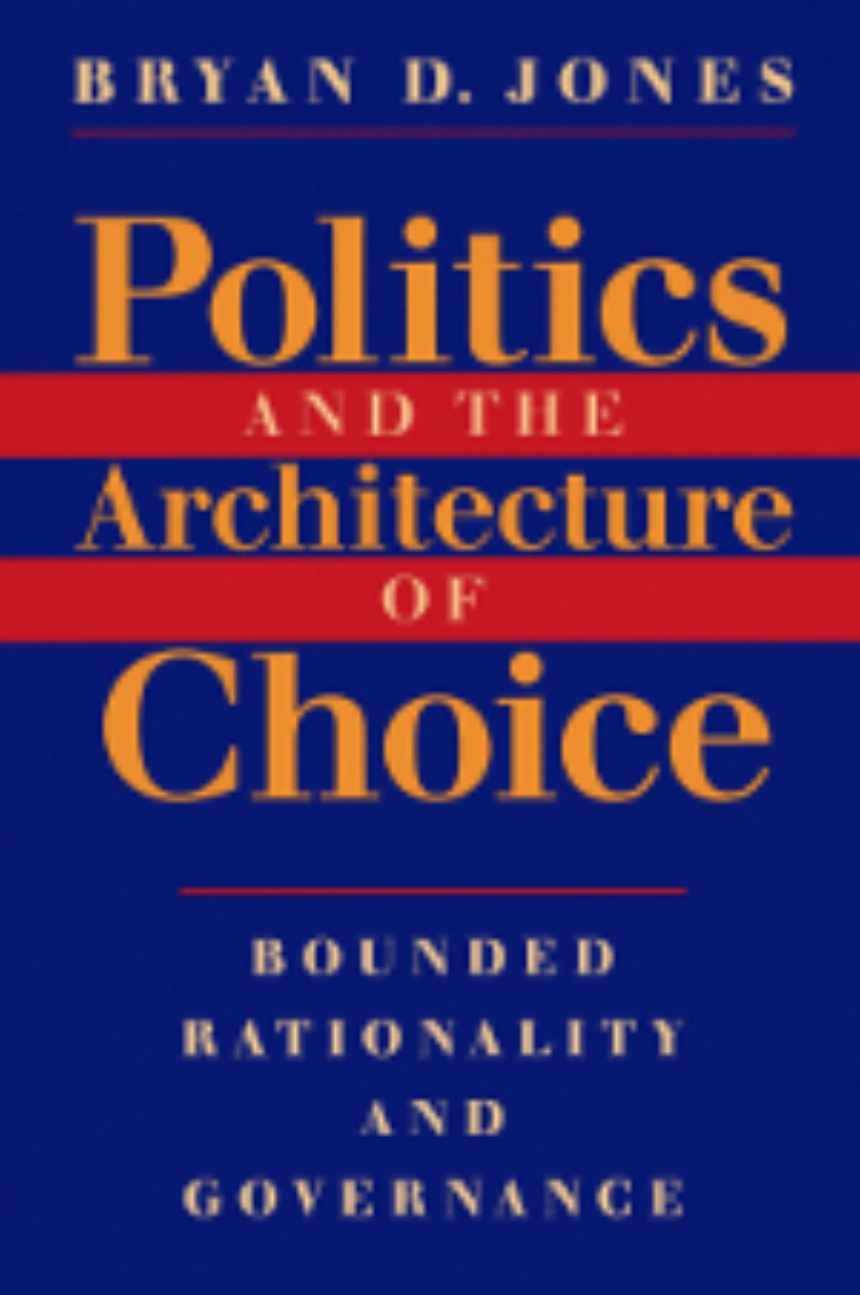Politics and the Architecture of Choice
Bounded Rationality and Governance
9780226406381
9780226406374
Politics and the Architecture of Choice
Bounded Rationality and Governance
Politics and the Architecture of Choice draws on work in political science, economics, cognitive science, and psychology to offer an innovative theory of how people and organizations adapt to change and why these adaptations don’t always work. Our decision-making capabilities, Jones argues, are both rational and adaptive. But because our rationality is bounded and our adaptability limited, our actions are not based simply on objective information from our environments. Instead, we overemphasize some factors and neglect others, and our inherited limitations—such as short-term memory capacity—all act to affect our judgment.
Jones shows how we compensate for and replicate these limitations in groups by linking the behavioral foundations of human nature to the operation of large-scale organizations in modern society. Situating his argument within the current debate over the rational choice model of human behavior, Jones argues that we should begin with rationality as a standard and then study the uniquely human ways in which we deviate from it.
Jones shows how we compensate for and replicate these limitations in groups by linking the behavioral foundations of human nature to the operation of large-scale organizations in modern society. Situating his argument within the current debate over the rational choice model of human behavior, Jones argues that we should begin with rationality as a standard and then study the uniquely human ways in which we deviate from it.
248 pages | 232p., 18 line drawings, 2 tables | 6 x 9 | © 2001
Political Science: Political Behavior and Public Opinion
Table of Contents
Preface: Prologue to a Grand Synthesis?
Part 1: Microfoundations
1. Traces of Eve
2. Adaptation and Its Limits
3. Procedural Limits on Adaptive Choice
4. Human Information Processing
5. A Social Species: Substantive Limits on Adaptive Choice
Part 2: Organizations and Institutions
6. The Behavioral Theory of Organizations
7. Efficient Markets, Efficient Politics, and the Index Problem
8. The Design and Evolution of Formal Institutions
9. Overestimation, Neglect, and Rationality
References
Index
Part 1: Microfoundations
1. Traces of Eve
2. Adaptation and Its Limits
3. Procedural Limits on Adaptive Choice
4. Human Information Processing
5. A Social Species: Substantive Limits on Adaptive Choice
Part 2: Organizations and Institutions
6. The Behavioral Theory of Organizations
7. Efficient Markets, Efficient Politics, and the Index Problem
8. The Design and Evolution of Formal Institutions
9. Overestimation, Neglect, and Rationality
References
Index
